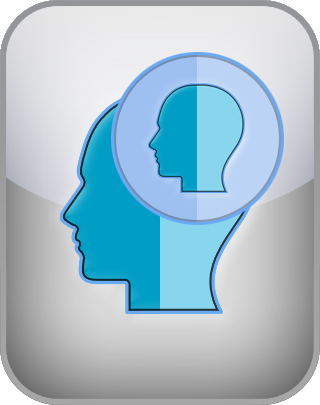Egocentrism Test
Egocentrism, the difficulty in distinguishing between one's own perspective and that of others, plays a significant role in shaping our interactions and emotional health. Pioneered by Aaron Beck, a leader in cognitive therapy, this concept highlights how self-centered thinking can impact relationships and well-being. This Egocentrism Test, inspired by Beck's work, measures the degree of egocentric tendencies in your thoughts and behaviors. By assessing self-referential thinking and perspective-taking abilities, this test provides valuable insights to promote empathy, better communication, and healthier relationships.
To take the test, enter your input below.
Question 1 of 22
I've been told I am not very understanding of others' feelings.
| Disagree | Agree |
NEXT
The IDRLabs Egocentrism Test is developed by IDRLabs. The IDRLabs Egocentrism Test is inspired by psychometric methodology and literature by professors Aaron Beck and Jean Piaget.
An egocentric is an individual whose psychological orientation is firmly anchored in their own subjective experience. They possess a myopic vision that gravitates inexorably toward their own desires, needs, and emotions, often eclipsing the significance of others' perspectives and feelings. This self-referential stance is not merely a transient phase but a pervasive and persistent mode of relating to the world. The egocentric mind is ensnared in a solipsistic bubble, where the individual's own perceptions and priorities dominate the cognitive and emotional landscape. Such individuals exhibit a chronic preoccupation with their own affairs, manifesting in behaviors that seek to place themselves at the center of every narrative. Conversations are monopolized by their own experiences; decisions are skewed towards their own advantage; and empathy is often relegated to a distant periphery, rarely penetrating the core of their interactions. In the realm of relationships, the egocentric person functions more as a soloist than a member of an ensemble. Their interactions are characterized by a lack of genuine reciprocity as they struggle to transcend the boundaries of their own viewpoint. This self-centeredness often leads to a deficit in meaningful connections, fostering an environment where others may feel unheard, undervalued, and ultimately disengaged. Egocentrism, thus, is a fundamental aspect of one's personality structure that requires introspection and deliberate effort to ameliorate. The pathway to mitigating such a pervasive self-focus lies in the development of empathy and the recognition of the intricate, interconnected web of human experiences. By expanding their cognitive and emotional horizons, egocentric individuals can begin to appreciate the multiplicity of perspectives that constitute the human condition, thereby fostering richer, more balanced, and more fulfilling interpersonal engagements.
Aaron Beck, a prominent figure in cognitive psychology and psychotherapy, is renowned for his development of cognitive therapy (CT), later termed cognitive-behavioral therapy (CBT). His work primarily focuses on the interplay between thoughts, emotions, and behaviors, positing that maladaptive thinking patterns are central to emotional and psychological distress. Egocentrism, a concept often explored within developmental psychology, also finds relevance in Beck's cognitive theories, particularly in understanding and treating cognitive distortions in depression and other mental health conditions.
Egocentrism, as originally conceptualized by Jean Piaget, refers to a developmental stage where children are unable to differentiate between their own perspective and that of others. In adults, egocentrism can manifest as an overemphasis on oneself, where one's own experiences, needs, and perspectives overshadow those of others. Beck's work acknowledges that egocentric thinking patterns can significantly contribute to the maintenance and exacerbation of psychological disorders.
In the context of depression, Beck identified several cognitive distortions that reflect egocentric thought processes. For instance, personalization, a common cognitive distortion in depression, involves individuals attributing external events to themselves without sufficient evidence. A person might believe they are the cause of a friend's bad mood, reflecting an egocentric bias in interpreting events. This cognitive distortion exemplifies how egocentric thinking can lead to undue self-blame and negative self-evaluation, thereby perpetuating depressive symptoms.
Moreover, Beck's cognitive triad—negative views about the self, the world, and the future—also incorporates aspects of egocentric thinking. Depressed individuals often exhibit a distorted self-focus, viewing themselves as inherently flawed or unworthy. This self-centered negative evaluation can impair their ability to objectively assess situations and interactions, leading to pervasive feelings of hopelessness and helplessness.
In anxiety disorders, egocentric thinking can manifest through catastrophizing and overgeneralization. An individual might excessively worry about potential personal failures or negative evaluations by others, believing that they are constantly being judged. This heightened self-focus and perceived centrality in others' thoughts can drive anxious behaviors and avoidance patterns.
Beck’s therapeutic approach aims to challenge these egocentric cognitive distortions through cognitive restructuring. By encouraging individuals to examine the evidence for and against their thoughts and to consider alternative perspectives, cognitive therapy helps reduce the egocentric bias in their thinking. Techniques such as thought records, behavioral experiments, and socratic questioning are employed to help individuals recognize and modify their maladaptive thought patterns.
In conclusion, Aaron Beck's work on cognitive therapy highlights the significant role of egocentrism in psychological disorders. By addressing egocentric cognitive distortions, cognitive therapy seeks to alleviate symptoms and promote healthier, more balanced thinking patterns. Beck’s integration of cognitive and behavioral strategies offers a comprehensive framework for understanding and treating the egocentric biases that contribute to emotional distress.
The IDRLabs Egocentrism Test is inspired by psychometric methodology and research by psychiatry professor Aaron Beck and psychology professor Jean Piaget. While the IDRLabs Egocentrism Test is inspired by psychometric methodology and scientific research, it cannot be used to provide clinical assessments or an accurate evaluation of your features. Clinical assessments should always be done in cooperation with a mental health professional. For more information about any of our online tests and quizzes, please consult our Terms of Service.

